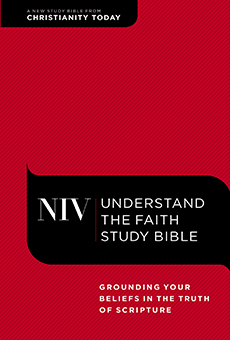
Is Earth Day Biblical?
An African proverb says, “You must treat the earth well. It was not given to you by your parents. It is loaned to you by your children.” It is a saying of the Kikuyu of Kenya, who have long had a keen sense of their responsibility to care for the earth. The Kikuyu name for Mount Kenya, the second highest mountain in Africa, literally means “God’s resting place,” and the people believe God gave them the earth to care for on behalf of their children.
This accords remarkably with the Biblical understanding. The language used in Genesis 1:28 – 30 troubles some people. “Rule over” can suggest “control,” which could lead to careless and selfish use of the earth. Indeed, today we live in fear of endangering species and gobbling up the earth’s precious resources.
Yet the Biblical motive for creation care has nothing to do with fear. Nor according to the Bible is it our job to “save the planet” — God has already promised to do that in Jesus Christ (see Revelation 22). Our job is simply to care as best we can for that which he has entrusted to us.
“Ruling over,” it turns out, is just the right phrase for this task, because it signals a positive and strong responsibility. It implies accountability to the One who gave us the task, as well as the ability and authority to do it.
Our care for creation is grounded in hope, which the Kikuyu proverb hints at. This is God’s world, not ours. In his loving providence, he has promised that there will be children, and that there will be an earth to hand over to them, generation by generation. Things may get worse for a time, but in the end, God will have his way with our planet.
Thus creation care is motivated not by fear, but by love — love for our children and our heavenly Father. We are called to steadily improve the environment while trusting in the One who cares more deeply for his creation than we ever could. And he will completely renew it someday.
Article drawn from the Understand the Faith Study Bible.

Understand the Faith Study Bible
The NIV Understand the Faith Study Bible will help you understand what you believe and why, while inspiring you to live for God. Includes over 100 devotionals.
Learn More





